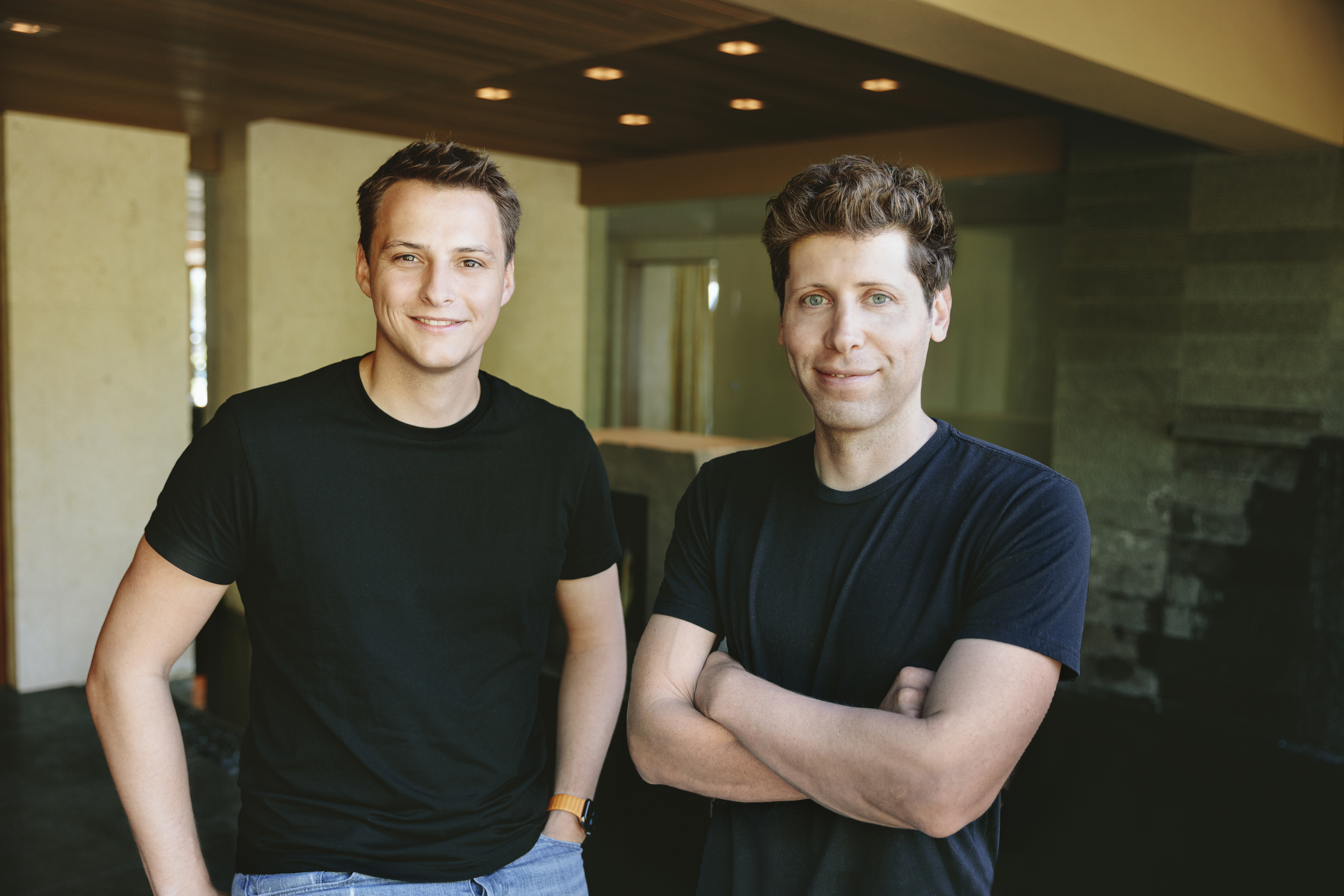As investors race to capitalize on surging interest in cryptocurrencies, startups are getting creative in how they onboard a generation of crypto users to their first wallets.
Worldcoin is perhaps one of the most audacious efforts to bribe the world to embrace their currency. The startup, founded by OpenAI CEO Sam Altman and Alex Blania, wants to put a crypto wallet (and some of their currency) onto every human’s smartphone, but in order to do so they have to build a way to determine whether someone is a unique human. Worldcoin is aiming to make their proof-of-personhood network in the least dystopian way possible. That being said, it still requires scanning a billion people’s eyeballs with a five-pound chromatic sphere called “The Orb”.

The internet has developed with a very amorphous mesh of user networks. Bot networks operate alongside real people using their real identities, alongside users impersonating real people, alongside pseudonymous users. This can be a recipe for misaligned user incentives, as modern social media platforms have showcased, but when it comes to finance it can also be a recipe for fraud and inequality. Worldcoin wants to avoid all of that while ensuring equitable distribution of their currency, ensuring that each human on earth only signs up for one wallet in their network.
Worldcoin CEO Alex Blania tells TechCrunch that the currency is part of a larger effort to drive a more unified and equitable global economy driven by the internet economy, something cryptocurrencies notably haven’t nailed in their first several years.
“[Worldcoin] started with a discussion that universal basic income will eventually be something that is very important to the world, and in general, getting access to the internet economy will be much more important than is obvious at this point,” Blania says.
The Worldcoin coin itself is a “Layer 2” Ethereum-based cryptocurrency that leverages the security of the Ethereum blockchain while having its own economy. Blania says Worldcoin chose to build on top of Ethereum largely because of its developer network, which he hopes will also adopt Worldcoin. While plenty of crypto proponents want Bitcoin to become most people’s first exposure to cryptocurrencies, Blania sees too many scalability issues with the currency compared to an Ethereum Layer 2.
“Bitcoin isn’t scalable to billions of people,” Blania says. “As we see today, it’s very expensive because transactions are slow.”
In June, Bloomberg wrote up early details of the company’s launch, which Blania notes was “pretty annoying,” acknowledging that what Worldcoin is doing is a complicated process with plenty of intricacies but that he’s confident his company will be able to communicate these to its global user base as it heads toward launch.
Speaking of which… The Orb?
The crypto startup has one of the more comically rigorous user acquisition flows, licensing their Orb cameras to contractors across the globe who manually go through the process of verifying each and every new user on the network in every city of every country on every continent of the globe.
In its most basic form, the company’s proof-of-personhood onboarding flow works by capturing an image of a person’s iris with the Orb, converting that image into a hash code (a process Worldcoin says can’t be reversed), checking with a database to ensure that a hash associated with that iris hasn’t already been uploaded, and, if it is unique, saving the hash while allowing users to generate a wallet in their app, from which the Orb scans a QR code. What this amounts to is a network of verified users that is tied to pseudonymous wallet codes rather than real names, and a database that is filled with hashes rather than actual eyeball photos, privacy efforts Blania hopes that Worldcoin can communicate clearly as it rapidly onboards users.

Blania says that on average contractors have been able to onboard over 700 users per Orb per week in early testing across four continents: South America, Asia, Africa and Europe. They currently have 30 prototype devices out in the field and hope to add hundreds more in the coming months, before ultimately shipping thousands of Orbs per month (if all goes to plan). What does seem apparent, is that users in the U.S. might be waiting for a while to get their quality time with a Worldcoin Orb.
“It might be that we delay launch in the United States until we have more clarity around the regulatory environment here,” Blania notes.
It’s all an arduous process, but setting up millions of users with their first crypto wallets while simultaneously building out a network of verified internet users via the blockchain sounds like something that many crypto investors would break their piggy banks for. As Worldcoin launches, unique users will be given a share of the digital currency (whether that is a flat rate or dollar-pegged amount isn’t final, but it sounds like it will be the latter). All-in-all 80% of the Worldcoin supply will be given to users onboarded to the service, while 10% will be reserved for the company with the remaining 10% going to the organization’s investors.
One of the major issues with giving users free money is that they tend to spend it. Blania says that they will make efforts to ensure users can’t immediately liquidate the entirety of their sign-up reward as Worldcoin scales its network and utility.
And speaking of investors, Worldcoin is launching with $25 million in funding led by Andreessen Horowitz, with participation from Coinbase, Reid Hoffman, Day One Ventures, Multicoin, FTX’s Sam Bankman-Fried and Variant’s Jesse Walden, among others. The investment was made at a $1 billion valuation, but the unicorn signifier largely seems meaningless here as Blania tells me the company and its IP will eventually be converted into a foundation. Investors are bankrolling the startup to get access to the 10% pool of investor capital in the Worldcoin token.
“The equity of the company itself should not matter at all, basically,” Blania says.
Ultimately, gaining attention for yet another new cryptocurrency is a massive challenge, onboarding billions of users is another one, as is ensuring their proprietary hardware can decipher billions of eyeballs in drastically different onboarding environments. Worldcoin has plenty of huge challenges ahead of it and some that likely won’t be obvious until there are more orbs in the wild. Some of these issues can likely be solved by having access to ever-flowing investor capital, but other issues will simply arise from communicating how all of this (pretty complicated) stuff works.
The company’s launch blog seems to communicate it all pretty well: “Nothing like this has ever been done before and the outcome is uncertain.”































Comment